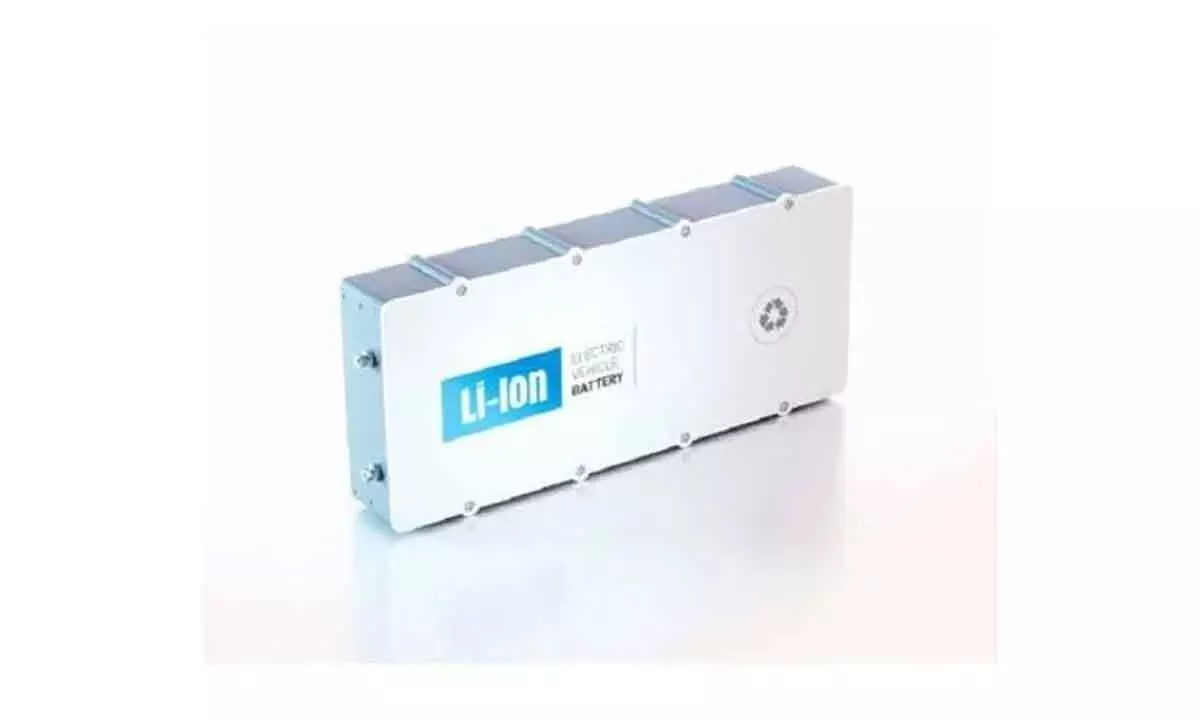New breed of makers pushing out Lithium-ion batteries
image for illustrative purpose

Lithium-ion batteries may sooner or later be passé and make way for sodium-ion batteries, which promise to be cheaper and have lower carbon footprint. Sodium-ion batteries address the concerns of geopolitical and supply-chain issues that are associated with Lithium-ion batteries. The materials, which will be used in such Sodium-ion batteries, can be fabricated in-house. Hence, the batteries would be a live example of ‘Make in India’ and ‘Make for India’. In another instance of successful industry-academia collaboration, Indian Institute of Technology-Kharagpur (IIT KGP)-Physics department has teamed up with a Kolkata-based start-up--Uneverse Mobility Pvt Ltd for further developing sodium ion technology and to make it a commercial proposition.
A team headed by Prof Amreesh Chandra from the Department of Physics at IIT Kharagpur has been working extensively on the development of Sodium-ion based energy solutions. They were amongst the first group of researchers in India to be funded by the Department of Science and Technology under flagship scheme “Materials for Energy Storage”. The team claims to have the capabilities to develop energy storage solutions starting from materials development, device level integration, recycling to determination of carbon footprint of the complete process.
One has to keep in mind that India’s current electric vehicle (EV) sector is characterized by dependency on subsidies, import-dependent supply chain and lack of a core indigenous battery technology. For electric mobility to be truly a champion of sustainability, we need the building blocks to be also sustainable. Uneverse is a passionate attempt to create such indigenous building blocks for a sustainable future of e-mobility and clean energy. The need of the hour, therefore, was to address the core of clean energy and e-mobility, that is, Battery Technology. And this was the trigger for this industry-academia collaboration. This is how and why the IIT KGP-Uneverse tie-up came into being.
The two will work towards developing sodium ion technology, which will have a portfolio of multiple form factors of cells, and these will be made available for Indian market. The developed technology will find application in not only electric vehicles but also in drones, consumer electronics and energy storage. Globally, only a handful of companies have made progress in this technology. Therefore, this unique collaboration is expected to put India at the forefront of the game-changing battery technology.
Moreover, the new technology will be near zero risk of accidental fires, unlike lithium. The technology developed already has a Technology Readiness Level (TRL) of 7 thereby paving the way for industrialization. Moves are afoot to initially set up MWscale facilities that would lead to commercialization using the home-grown technology, which already has a technology readiness level (TRL) of seven.
The next step would be to set up GWhscale facilities to cater to both domestic and export markets. Interestingly, India is expected to need 220 Gwh of ACC batteries by 2030. The current indigenous ACC production planning and deployment is nowhere close to this requirement and therefore presents a huge market opportunity. Would other start-ups and academic and research institutes take a lesson or two from this?

